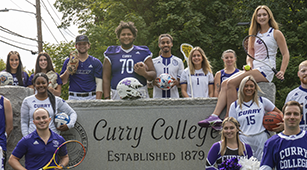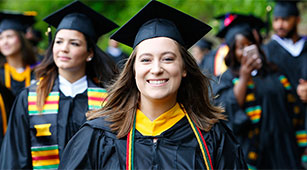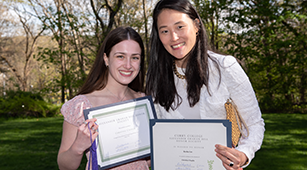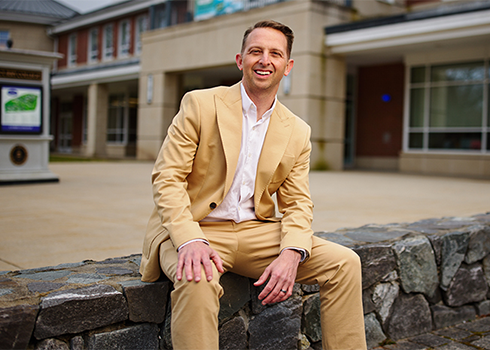Schedule an appointment to meet with Career & Experiential Learning about your area of interest.
Make an Appointment

Schedule an appointment to meet with Career & Experiential Learning about your area of interest.
Make an Appointment
Student-run clubs, organizations, and events are a key part of succeeding at Curry.

A Division III experience unlike any other. See what it means to be a Curry Colonel.

Empower our students to achieve their ambitions. Consider a gift to Curry College today.

Our rich liberal arts tradition, sound career focus, and empowering and supportive environment prepare our students for success.

Gen Ed is based on our belief in the power and potential of the liberal arts. Our 44-47 credit Gen Ed curriculum addresses the "Essential Learning Outcomes" and High Impact Practices established by the prestigious Association of American Colleges and Universities. The curriculum develops skills needed to participate in the 21st century economy - skills that employers and professors value: global knowledge, effective written and oral communication, critical thinking, information literacy, quantitative reasoning, intercultural sensitivity, teamwork and ethical judgment.
Curry students have the opportunity to explore and experience unique and exciting First-Year Inquiry and Gen Ed Capstone course offerings like Earth 2044, Happiness, Food, Beer, GOATs, Horrorgorical, Secret Life of Bees, and more!
Related:
Active Learning Outcomes:
Courses and activities fulfilling the Active Learning requirement will be expected to meet a majority of the learning outcomes.
Breadth Learning Outcomes:
Upon successful completion of the course, students will be able to:
Diversity Learning Outcomes:
First-Year Inquiry Learning Outcomes
Upon successful completion of the course, students will be able to:
International / Global Interdependence Learning Outcomes
Courses fulfilling the International/Global Interdependence requirement must be able to meet at least two of the following learning outcomes:
Gen Ed Capstone Learning Outcomes
Upon successful completion of this course, students will be able to:
Wellness Learning Outcomes
Courses and activities fulfilling the Wellness requirement will be expected to meet a majority of the learning outcomes.

Fueled by the outstanding mentorship he received throughout his academic career, Gen Ed Professor Ryan Theroux is on a mission to provide the same experience for Curry College students. “It’s about belonging. It's about people. It's about community. It's about feeling welcome and that's what you're going to remember. You're going to remember someone that really influenced you or played a big part in your life at a very vulnerable time. That’s what it's all about.”
Start with a foundation in the liberal arts. Add attentive faculty and countless opportunities to learn by doing. That’s what you’ll get with a bachelor’s degree from Curry. Learn what’s waiting for you today.
We use cookies to make interactions with our websites and services easy and meaningful. By continuing to use this website, you consent to Curry College’s usage of cookies and similar technologies in accordance with the college’s Cookie Notice.